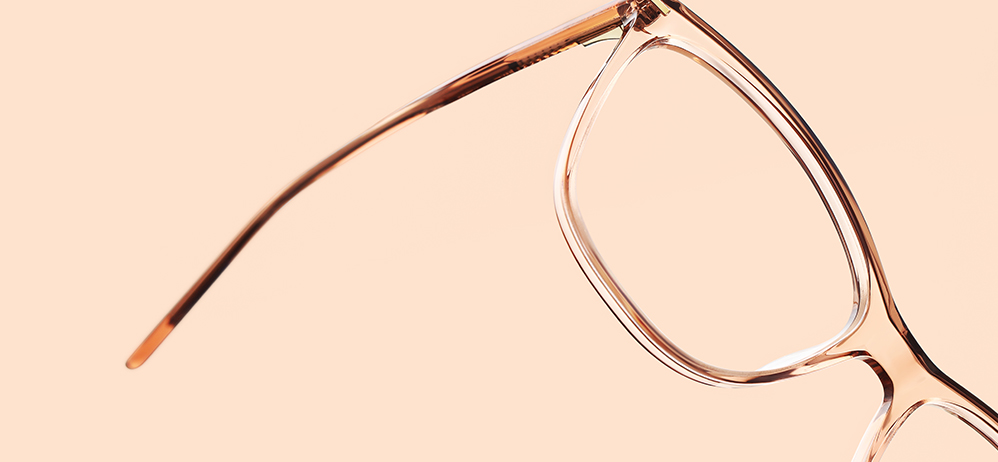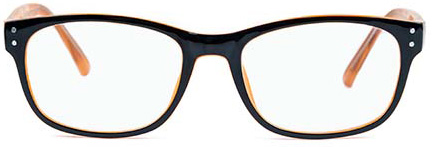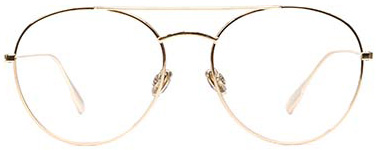

Eyeglass Frame Materials
Frames for eyeglasses come in a variety of materials, each with its own unique characteristics and benefits. From traditional metals like titanium and stainless steel to newer materials like acetate and silicone, the material options for your frames are endless. Each material offers unique benefits (like durability, flexibility, and style), which means some materials better suit your lifestyle than others.
In this guide, we will explore the different glasses frame material options, their pros and cons, and which material best suits you.

Plastic Eyeglass Frames
Plastic eyeglasses are a great budget-friendly option. Plastic frames are lightweight, hypoallergenic, and easy to adjust. Zyl, cellulose acetate propionate, and nylon are the most common plastics used for eyeglasses. Zyl glasses often come in creative styles. Most popular are laminated zyl frames, which feature dimension and layered colors.
Cellulose acetate propionate is a nylon-based plastic, known for its transparency and high gloss finish. Most nylon glasses are blended with other plastics and are more durable than past nylon frames. Nylon is the preferred material for sports and performance frames.
| Hypoallergenic | Lightweight | Strong | Flexible | Anticorrosive | Variety of styles | |
|---|---|---|---|---|---|---|
| Cellulose |  |
 |
 |
 |
 |
 |
| Acetate & Zylonite |  |
 |
 |
 |
 |
 |
| Cellulose Propionate |  |
 |
 |
 |
 |
 |
| Nylon |  |
 |
 |
 |
 |
Coating |

Metal Eyeglass Frames
Metal eyeglasses withstand wear and tear, feature sleek designs, and are corrosion-resistant. A variety of metals are used to make eyeglass frames. Most metal frames are hypoallergenic but those with sensitive skin should take caution first. The right plating, such as palladium or nickel-free, makes metal glasses an option for almost everyone.
| Hypoallergenic | Lightweight | Strong | Flexible | Anticorrosive | Variety of styles | |
|---|---|---|---|---|---|---|
| Monel |  |
 |
 |
 |
With plating |  |
| Titanium |  |
 |
 |
 |
 |
 |
| Beryllium |  |
 |
 |
 |
 |
 |
| Stainless Steel |  |
 |
 |
 |
 |
 |
| Flexon |  |
 |
 |
 |
 |
 |
| Aluminum |  |
 |
 |
 |
 |
Coating |
Which Frame Material is Best for You?
Choosing the right frame material for your glasses is an important decision that affects the overall durability, comfort, and fit of your glasses. Different materials provide varying degrees of strength, weight, flexibility, and style, so it’s essential to consider your lifestyle and personal preferences when choosing a material for your eyeglasses. Considering the best material can help ensure your glasses look great, feel comfortable, and last a long time.
Ultimately, it's best to try out different materials with your lifestyle in mind. After considering which material is best for you, learn the other important factors to consider during prescription eyeglass selection.